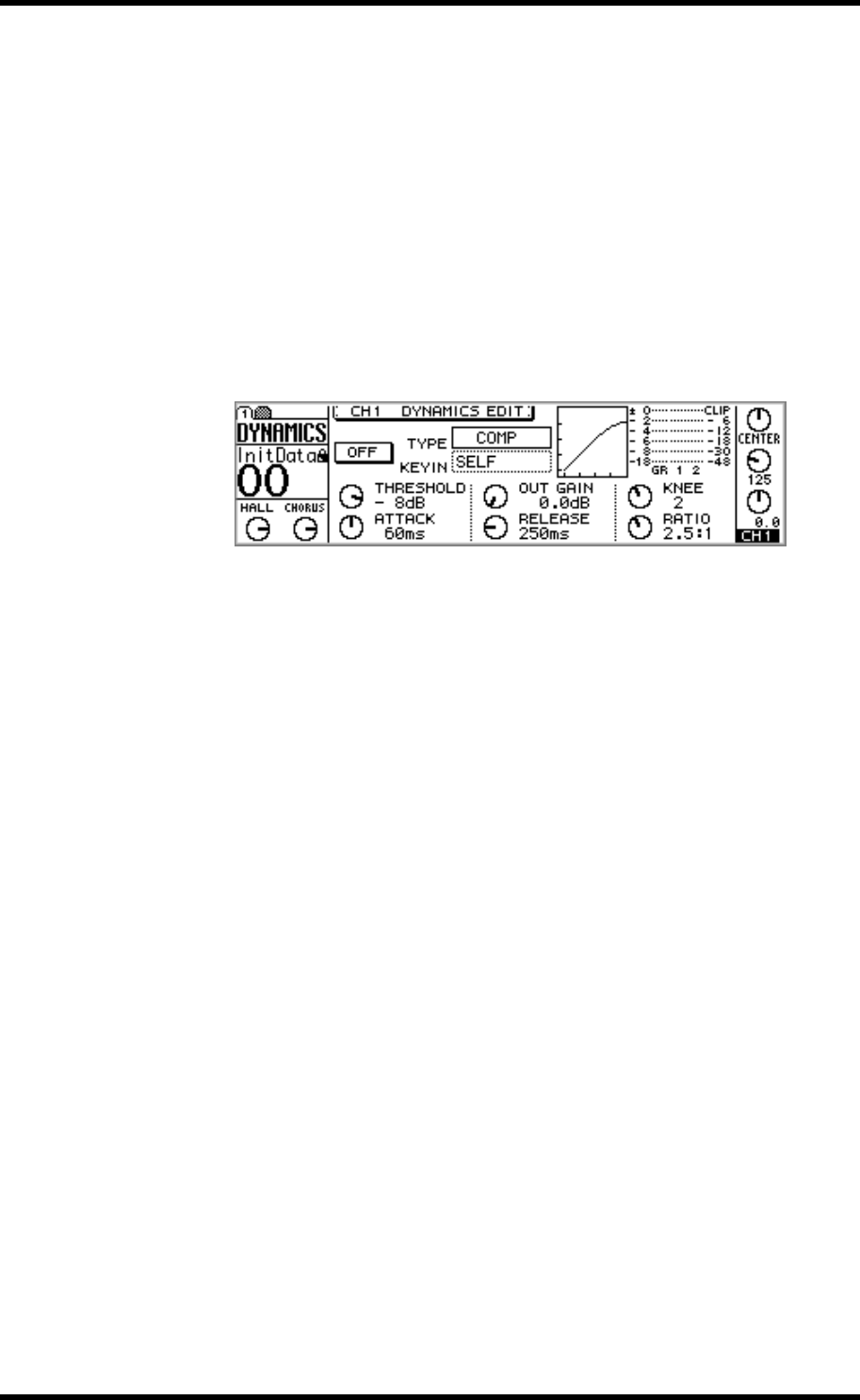
162 Chapter 13—Dynamics Processors
01V—Owner’s Manual
About the Dynamics Processors
Input channels 1 through 16, the aux sends, and the stereo output all feature powerful
dynamics processors, offering compressor, limiter, gate, ducker, and compander func-
tions. See the “Block Diagram” on page 24 for the exact location of each dynamics pro-
cessor. Input channel processors can be self triggering (i.e., the signal being processed
is used as the trigger signal), or triggered by a signal from another input channel.
Dynamics settings are stored as programs in the dynamics library, which contains 40
preset programs and 40 user programs. See “Dynamics Library” on page 173 for more
information. Dynamics settings are also stored in scene memories. See “Storing Mix
Scenes” on page 186 for more information.
Dynamics processors are edited on DYNAMICS page 1, as shown below. Use the
[DYNAMICS] button to locate this page.
The name of the type of dynamics processor appears in the middle of the page next the
dynamics curve. To the left is the processor on/off switch. Below these are the dynamics
parameters, the number of which vary depending on the type of processor selected. The
GR meter indicates the amount of gain reduction being applied to the selected channel.
Next to this are level meters for the selected channel and its neighbor.


















